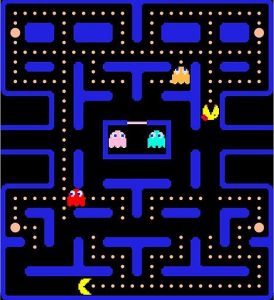For millions around the globe, the day doesn’t truly begin until that first aromatic sip of coffee. More than just a morning ritual, coffee, and specifically its active ingredient caffeine, exerts a powerful influence on our minds.1 While often celebrated for its ability to sharpen focus and banish drowsiness, the Psychological effects of coffee are far more nuanced, encompassing a spectrum of benefits and potential drawbacks.
Let’s delve into the fascinating ways coffee interacts with our brains and alters our psychological landscape.
The Mechanism: How Coffee Works Its Magic
At its core, caffeine is a central nervous system stimulant.2 Its primary mechanism of action involves blocking adenosine, a neurotransmitter that naturally accumulates throughout the day and promotes feelings of drowsiness and fatigue.3 By binding to adenosine receptors, caffeine essentially puts the brakes on this “sleep signal.
This blockade has a ripple effect:
- It allows other stimulating neurotransmitters like dopamine and norepinephrine to flow more freely, contributing to feelings of alertness and well-being.5
- It can influence brain regions associated with attention and arousal.6
The “Good” Buzz: Positive Psychological Effects
When consumed in moderation, coffee can offer several desirable psychological effects:
- Increased Alertness and Reduced Fatigue: This is coffee’s most well-known benefit. By blocking adenosine, caffeine effectively delays the onset of tiredness and enhances wakefulness, making it a popular aid for early mornings or late nights.
- Improved Focus and Concentration: Many users report enhanced ability to concentrate on tasks, sustain attention, and even improve problem-solving skills, particularly on tasks requiring vigilance and quick reaction times.
- Elevated Mood and Feelings of Well-being: The increased flow of dopamine can lead to temporary feelings of pleasure, vigor, and overall mood elevation. This is a significant reason why coffee is such a beloved beverage for many.
- Enhanced Memory: Some research suggests that caffeine can boost memory consolidation, particularly for non-habitual users.9 This effect may be linked to caffeine’s interaction with adenosine receptors, which are implicated in memory processes.10
- Reduced Risk of Depression: Long-term observational studies have linked regular, moderate coffee consumption to a lower risk of developing depression.11 This protective effect may be due to coffee’s rich antioxidant content, anti-inflammatory properties, and its interaction with neurotransmitters.
- Improved Physical Performance (Indirectly Psychological): While primarily physiological, the mental boost and reduced perception of effort can psychologically enhance motivation and endurance during exercise.12
The “Too Much” Trouble: Negative Psychological Impacts
While beneficial in moderation, excessive coffee intake can lead to a range of unpleasant psychological effects:
- Anxiety and Nervousness (Jitters): Caffeine stimulates the release of adrenaline, the “fight-or-flight” hormone.13 At higher doses, this can manifest as increased anxiety, jitteriness, restlessness, and even panic attacks, especially in individuals sensitive to caffeine or those with pre-existing anxiety disorders.14 The DSM-5 even recognizes “caffeine-induced anxiety disorder.”
- Sleep Disturbances: Coffee’s primary function is to keep you awake. Consuming it too late in the day can significantly disrupt sleep patterns, prolonging the time it takes to fall asleep and reducing the quality of deep and REM sleep.15
- Irritability and Agitation: As the stimulant effects wear off, or with excessive intake, some individuals may experience heightened irritability, mood swings, and agitation.16
- Caffeine Intoxication (“Caffeinism”): Extremely high doses (e.g., over 1,000 mg per day) can lead to a state characterized by restlessness, excitement, rambling thoughts and speech, agitation, and insomnia.17
- Caffeine Withdrawal: Regular consumption can lead to physical and psychological dependence.18 When caffeine intake is stopped or significantly reduced, withdrawal symptoms can occur, including headaches, fatigue, irritability, difficulty concentrating, and depressed mood.19 For many, continued coffee consumption is partly motivated by avoiding these unpleasant withdrawal symptoms.
Finding Your Balance
The psychological effects of coffee are highly individual, influenced by genetics, sensitivity to caffeine, body weight, and usual consumption habits.
- Listen to Your Body: Pay attention to how coffee makes you feel. If you’re experiencing anxiety, jitters, or sleep issues, consider reducing your intake or shifting your consumption earlier in the day.20
- Moderation is Key: Most research points to moderate consumption (generally up to 400 mg of caffeine per day, equivalent to about 4 cups of brewed coffee for adults) as the sweet spot for maximizing benefits and minimizing risks.21
- Timing Matters: Avoid caffeine in the late afternoon or evening to protect your sleep quality.22
- Context: While coffee can boost focus, it doesn’t necessarily enhance creativity, which often thrives in a more relaxed, less focused mental state.
In conclusion, coffee is a powerful psychoactive substance that can be a valuable tool for enhancing alertness, mood, and cognitive function.24 However, like any tool, it must be used wisely. By understanding its intricate psychological effects, individuals can harness the positive aspects of coffee while mitigating the potential downsides, ensuring their daily brew truly contributes to their well-being.






